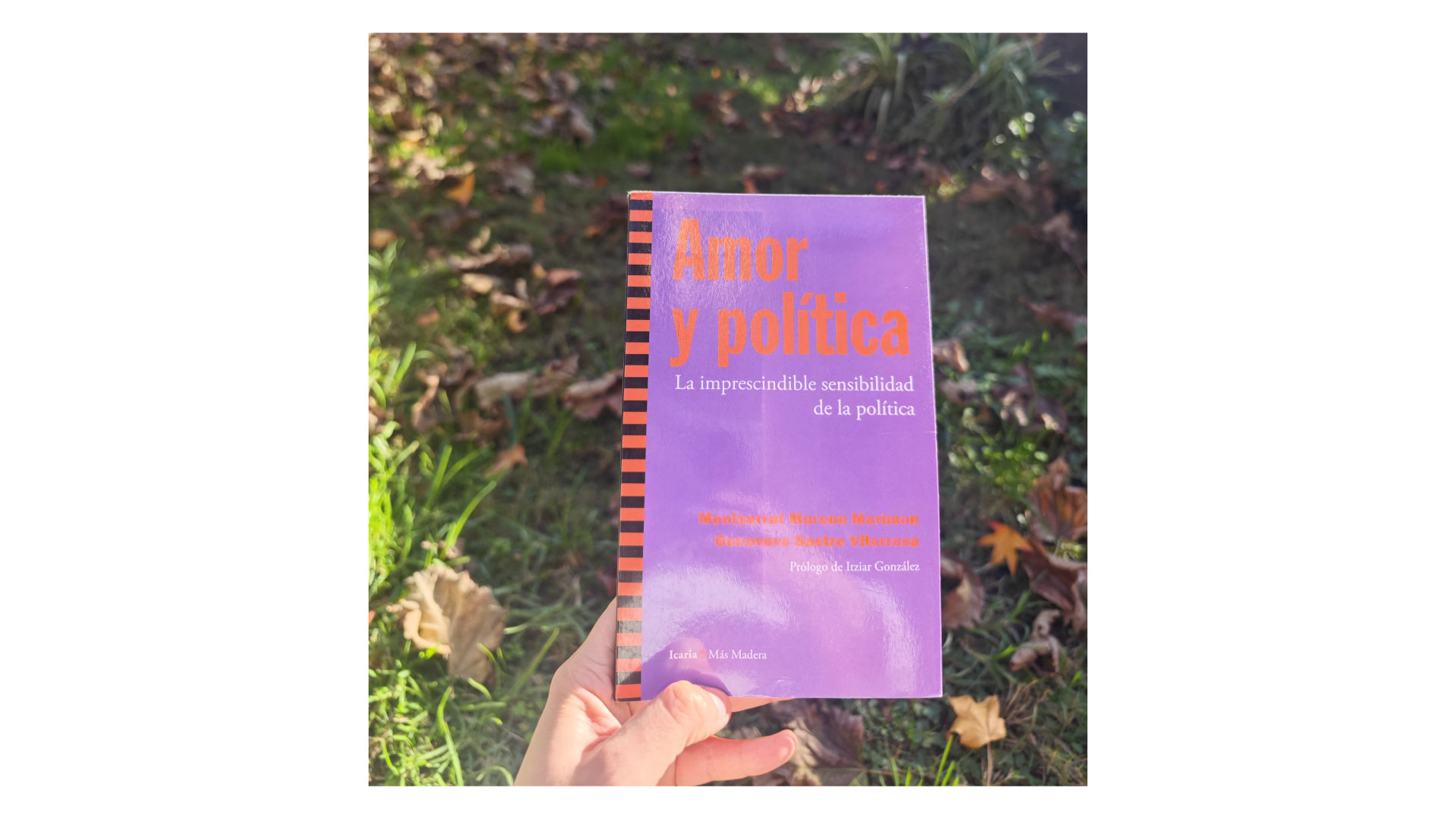"Love and Politics": Rethinking Politics through Sensitivity and Cooperation

“Cooperation is not just an act of coexistence—it is the silent engine of great transformations.”
We live in a world where politics often seems detached from emotions and human connections. Policies are formulated in cold, calculated environments, where human realities are sometimes treated as numbers and statistics. However, Love and Politics (original title: Amor y política: La imprescindible sensibilidad de la politica) by Montserrat Moreno Marimón and Genoveva Sastre Villarrasa reminds us that feelings, care, and empathy are not weaknesses but essential components for building just and sustainable societies.
Why should we talk about love in politics? The authors present us with a challenge: to question the traditional political model that separates “rationality” from “emotion.” For decades, we have been conditioned to believe that public matters must be handled without “sentimentality.” However, as the book points out, this notion ignores an essential truth: humans are emotional beings. Denying the role of emotions in political life often leads to apathy, injustice, and a disconnection between public institutions and the people they are meant to serve.
The book argues that love and cooperation are not private matters—they are collective tools for transformation. According to the authors, “cooperation is the essential property of life.” From the simplest life forms to the most complex human organizations, cooperation has always been the driving force of survival and progress. This biological and social truth directly challenges the competitive, individualistic narratives that dominate contemporary political systems.
At the heart of their argument is the idea that good governance requires emotional sensitivity. The authors assert that without a deep understanding of one’s own emotions and those of others, the exercise of power becomes detached, and in many cases, unjust. Leaders who ignore the emotional realities of their communities risk creating policies that fail to address real needs. Empathy, then, becomes a cornerstone of just leadership. “We cannot expect anyone to govern adequately,” the authors write, “if they lack emotional sensitivity, because that insensitivity translates into decisions that increase suffering.”
This idea has profound implications for participatory governance. A political system that embraces cooperation rather than competition fosters stronger community bonds and more inclusive decision-making processes. The book calls for spaces of dialogue where diverse perspectives can be heard and valued. By contrast, when dialogue is absent or superficial, mistrust and division grow.
Another powerful critique the authors make is against the myth of romantic love as an isolated, idealized construct. They argue that our culture often confines love to the private sphere, portraying it as something reserved for family and intimate partners. This narrative can be limiting. The book invites us to expand our understanding of love as a collective practice rooted in mutual care, solidarity, and a commitment to the common good. “Political love” is not sentimentalism—it is an active force that fosters trust, resilience, and justice within communities. Imagine public policies shaped by love in its broadest sense: policies that prioritize care, housing, education, and well-being over profit or power dynamics.
A key element of this discussion is the role of gender and the patriarchal structures that have historically dismissed care and emotions as “feminine” and, therefore, less important. Patriarchy not only dictates the exclusion of emotions from political discourse but also reinforces hierarchies that diminish women and anyone associated with nurturing roles. The authors emphasize that embracing emotions in politics is not simply about “humanizing” public life; it is about dismantling a system that equates strength with dominance and care with weakness. A gender perspective allows us to see how emotional intelligence can be a form of resistance, challenging narratives that have kept many voices at the margins of power. By recognizing that care, empathy, and cooperation are strengths, we can begin to reshape political culture in a way that promotes inclusion and equality.
The authors also explore the dangers of emotional repression in politics. When emotions are excluded from political discourse, the result is often the perpetuation of patriarchal norms that dismiss compassion and care as “weaknesses.” This suppression of emotional intelligence not only affects leaders’ capacity to make fair decisions but also alienates citizens who feel unseen and unheard. The book argues that recognizing emotions is not only necessary for personal well-being but also for the health of democratic institutions.
One of the most inspiring aspects of Love and Politics is its vision of collective transformation. The authors remind us that societal change is possible when we embrace cooperation as a form of strength. They point to historical movements driven by solidarity and shared vision—movements that challenged oppressive systems not with brute force but with creativity, empathy, and perseverance.
Ultimately, Love and Politics invites us to rethink our approach to power, public spaces, and human relationships. How do we handle conflicts in our shared spaces? Are we fostering open dialogue or imposing our views? Are we nurturing a political culture where everyone feels included and valued, or are we reinforcing systems of exclusion and control?
This book is not just an essay—it is a manifesto for a more human and creative approach to politics. True transformation begins when we understand that power is not an individual possession but a collective construction. If we want a more just society, we need leaders and communities that embody sensitivity, ethics, and cooperation in their actions.
Reading Love and Politics leaves us with a fundamental question: What if the greatest revolutionary act is to care?
In a time marked by social fragmentation and uncertainty, this book feels like an urgent call to rebuild the political from a place of connection, humanity, and hope. It challenges us to lead with empathy, to foster cooperation instead of competition, and to imagine politics as an expression of love in action.
* References:
Amor y política: la imprescindible sensibilidad de la política. Montserrat Moreno i Marimón, Genoveva Sastre Vilarrasa. Icaria, 2015. ISBN 978-84-9888-669-6.
Words of:
Konstantina Chrysostomou
Publication date:
06/01/2025
Originally written in:
English
Tags:
Everyday life / Public space
